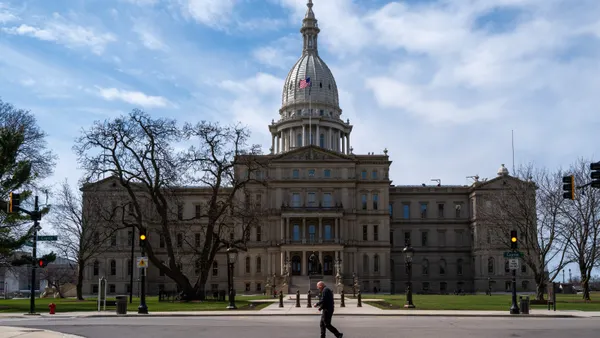Set the record straight, it’s rare for a credit union to buy a bank.
Small community banks' share of the market has steadily declined; meanwhile, large national banks have continued to dominate the financial services ecosystem.
The regulatory burden is growing, Wall Street banks are getting bigger, there are trendy offers from venture-capital backed FinTechs and non-bank lenders, COVID-impacts to commercial real estate are lingering, and stock prices remain volatile following the largest banking failure in our nation’s history.
Community banks, like credit unions, are community staples and are critically important to preserving access to underserved communities. They provide a local banking option in communities that may be considered “too small” or “unprofitable” to big banks. In some rare and unique circumstances, a community bank has chosen to sell its assets and liabilities to a member-owned credit union instead of a for-profit bank. In fact, some small community-focused banks have chosen to actively pursue credit unions as buyers, since there is more alignment on community investment and interest in protecting jobs and access to local branches.
Typically, when a bank chooses to divest and sell, nearly all of the assets go to other banks. Between 2012 and January 2025, a total of 2,499 banks were purchased by other banks. In contrast, over the same period, only 100 bank sales involved a credit union.
No bank is ever forced or required to sell its assets to a credit union.
According to a comprehensive annual survey from the Conference of State Bank Supervisors, community bankers report that the primary competition they are concerned about is national or other community banks, not credit unions.
Community banks are making business decisions for the benefit of their customers and community, and they should have more options when choosing the right partner when it’s time to sell. In some cases, a credit union may be the smartest option, for any or all of these reasons:
- The credit union is already located in and serving the same or nearby community.
- Services can remain consistent and local.
- It’s good for the community. Instead of a bank closing and creating a banking desert, the purchasing credit union agrees to stay right there and serve.
- Bank CEOs that have sold to a credit union tell us a credit union is more likely than another bank to retain employees and keep branches open.
Credit unions are a valuable option that gives communities a fighting chance at retaining local services. Community banks choose to sell to a credit union to help working families retain financial services that exist solely to meet their needs.
Since 2012 nationally, 67% of bank assets sold go to out-of-state banks. In states like Oregon and Washington, that number gets closer to 90%. With the announcement that Colorado’s FirstBank will sell to one of the largest banks in the country, Colorado will also see more than 90% of state bank assets go to out of state banks. That often comes with branch closures, staff layoffs and a reduced focus on local communities.
It’s not credit unions buying banks, it’s other banks. It’s disappointing when some choose to frame a community bank selling to a credit union as problematic. Credit unions aren’t structured for profit, they are structured for members and communities to thrive. For some community banks, that’s what they’re looking for in a buyer.
Credit unions are one option to consider when selling. At a credit union, members aren’t just money or an account number, they are the foundation and purpose for the mission. These co-ops are structured for members and communities to thrive. When facing the unfortunate decision to close, community banks should be able to make a mission-centered choice.











